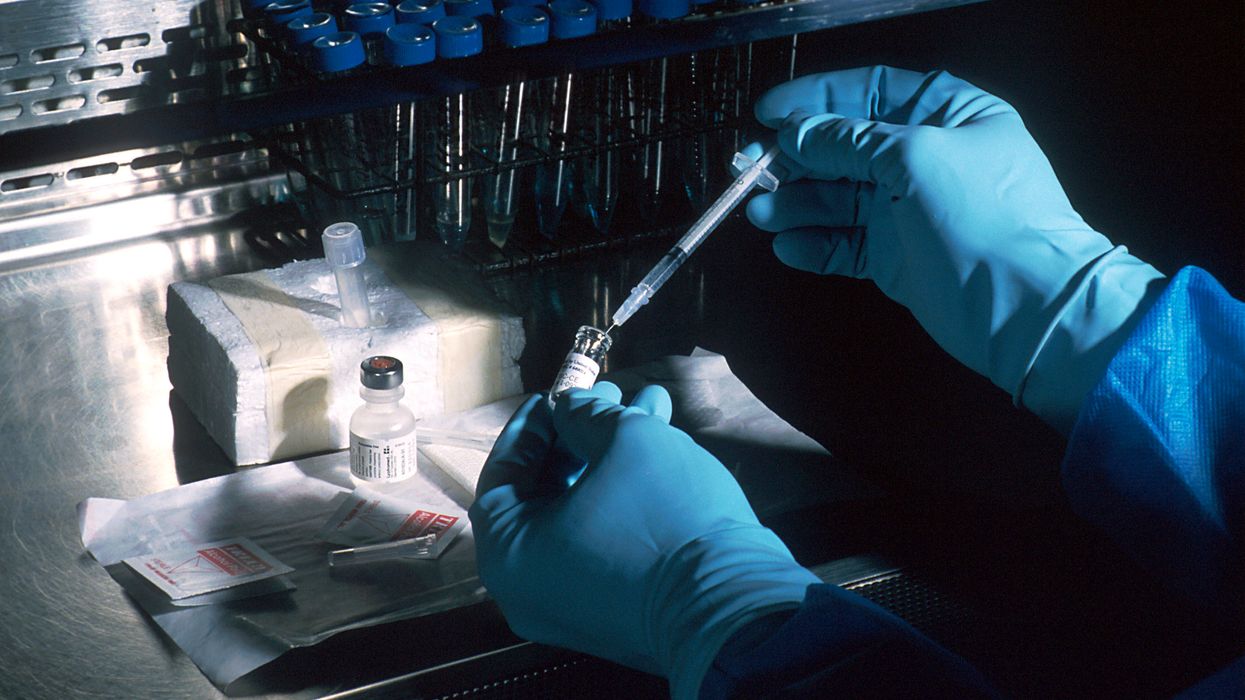Johnson & Johnson Sues Biden Over Law Reducing Prescription Drug Costs
CNBC reports that Johnson & Johnson sued the Biden administration on Tuesdayin an attempt to halt provisions in the Inflation Reduction Act designed to cut the cost of prescription drugs. The suit follows similar legal maneuvering by drug giants Merck and Bristol Myers Squibb.
President Joe Biden signed the Inflation Reduction Act in August 2022 after it passed both houses of Congress with only Democratic votes and over unified Republican opposition. A provision in the legislation allows the federal Medicare program to negotiate drug prices for some of the medications covered by program benefits.
The lawsuit filed by Johnson & Johnson in New Jersey’s federal district court aims to block the Department of Health and Human Services from compelling the company to participate in the federal program. According to CNBC, the company alleges that the legislation is the result of “innovation-damaging congressional overreach.”
Merck sued the administration in June, complaining that the process to lower prices is a “sham.” A week later Bristol Myers Squibb also sued, noting that its blood thinner Eliquis and its cancer treatment Opdivo would be included in price negotiations. Both drugs were significant contributors to the company’s profits in 2022, with a reported combined $20 billion in sales.
The Biden administration has been sued over the prescription drug benefit by the U.S. Chamber of Commerce and Pharmaceutical Research and Manufacturers of America (PhRMA), the lobbyist group for multiple drugmakers.
“We’ll vigorously defend the President’s drug price negotiation law, which is already lowering health care costs for seniors and people with disabilities. The law is on our side,” Health and Human Services Secretary Xavier Becerra tweeted on June 6 in response to Merck’s suit.
Johnson & Johnson, Merck, and Bristol Myers Squibb earn billions from drug sales. For 2022, Johnson & Johnson reported sales of $94.9 billion and $27 billion in profits. That same year, Merck’s net income was $14.5 billion and Bristol Myers Squibb’s was $6.3 billion.
In addition to the drug negotiation provisions, the Inflation Reduction Act also contains other stipulations designed to lower drug costs.
The law requires drug companies to provide rebates to Medicare if drug prices increase at a rate higher than inflation. The Department of Health and Human Services released a list of 43 drugs on June 9 that fall under this provision.
Prescription drug costs are now capped at $2,000 per year in out-of-pocket expenses for many Medicare recipients as a result of the law.
Insulin costs are also capped at $35 per month for certain Medicare recipients. In March, drug manufacturer Eli Lilly announced that it would cap the price of its insulin drug itself, including for patients outside the Medicare system, citing the changes implemented by Biden’s law.
In spite of its benefits for millions of consumers, congressional Republicans on February 3 introduced H.R. 812, a bill that would completely repeal the entire law. Rep. Andy Ogles (R-TN), who sponsored the bill, said in a statement touting his legislation, “Instead of creating any positive change for Americans facing record-breaking economic challenges, Leftists opted to increase federal spending and the deficit – by at least $110 billion dollars through 2031 – in order to advance their personal political agendas.”
During remarks on February 9 at the University of Tampa in Florida, Biden warned about the fallout for medical patients if Ogles’ bill becomes law.
“If Republicans in Congress have their way, the power we just gave Medicare to negotiate lower prescription drug prices goes away. The $2,000 cap next year on prescription drugs goes away. The $35-a-month insulin limitation goes away,” Biden said.
Reprinted with permission from American Independent.












